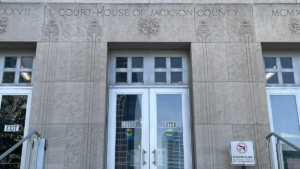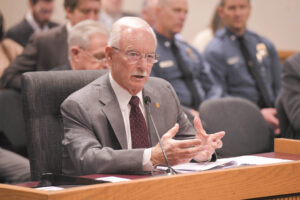About 67,800 convicted felons in Missouri cannot vote in the November election because they are on parole and probation, according to a new study.
The Sentencing Project’s new study found that Missouri is among 16 states that don’t allow convicted felons to vote if they are on parole or probation. It estimates that about 22,900 Missourians in 2020 will be denied because they are on parole and about 44,900 who are on felony probation.

Earlier this year, state Sen. Jamilah Nasheed, D-St. Louis, filed a bill seeking to repeal the prohibition on voting for individuals convicted of a felony and who are now on probation or parole. The bill died in May, when the legislative session ended for the year.
“Because of the mistakes they have made in the past, these individuals are left out of the political process,” Nasheed wrote in a St. Louis American column, “left out of our democracy.”
In Missouri, people in jail or prison for committing a crime also cannot vote. That makes up about 27,700 people, according to the report’s estimates.
According to the Election Protection Coalition, a person convicted of a misdemeanor but not sentenced to imprisonment does not lose eligibility to vote. A person convicted of a misdemeanor and sentenced to imprisonment automatically regains eligibility to vote after such person is released.
People who are in jail on pretrial detention or awaiting trial have a right to vote absentee.
Overall, Missouri’s disenfranchisement rate for this population is 2.08 — but it’s more than double for African Americans with 5.01, the study found. The rate was 1.58 for Latinos in Missouri.
“When we break these figures down by race and ethnicity,” the report states, “it is clear that disparities in the criminal justice system are linked to disparities in political representation.”
Of the 5.2 million disenfranchised individuals across correctional populations, three-quarters are people living in their communities, having fully completed their sentences or remaining supervised while on probation or parole — including nearly half (43 percent) who have completed their sentence.
People currently in prison and jail now represent about one fourth of those disenfranchised. The report is based on estimates rather than head counts, it states.
“I believe,” Nasheed said, “you should never lose your voice just because you committed a crime all those years ago.”
Our stories may be republished online or in print under Creative Commons license CC BY-NC-ND 4.0. We ask that you edit only for style or to shorten, provide proper attribution and link to our website. AP and Getty images may not be republished. Please see our republishing guidelines for use of any other photos and graphics.





